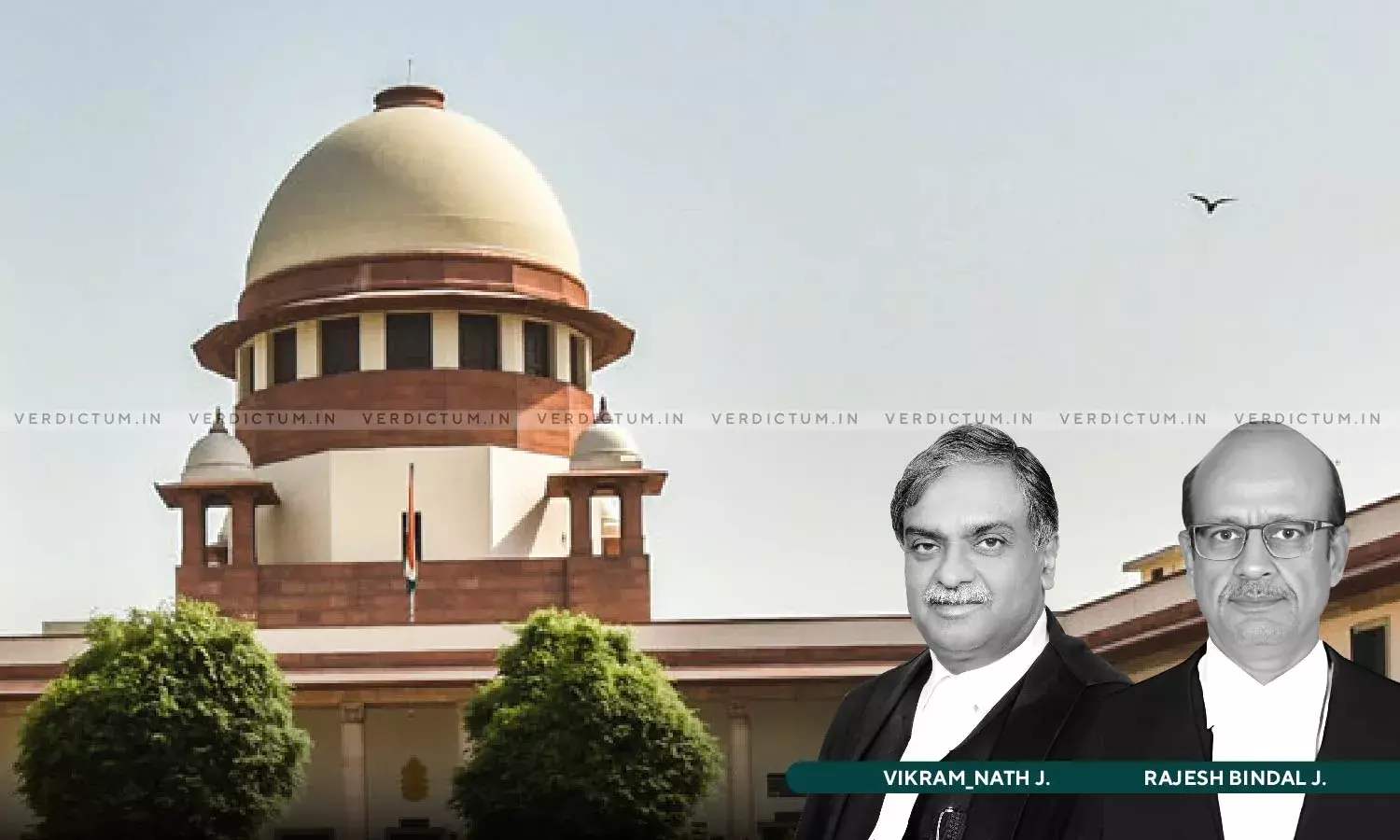Date Of Issuance Of Insurance Policy Is Relevant Instead Of Date Of Proposal Or Issuance Of Receipt: SC

The Supreme Court held that the date of issuance of insurance policy is relevant date for all the purposes, instead of date of proposal or the date of issuance of the receipt.
The Court held thus in a batch of two appeals filed by the Reliance Life Insurance Company Ltd. that raised a common question of law in which the challenge was to the orders of the National Consumer Disputes Redressal Commission (NCDRC).
The two-Judge Bench of Justice Vikram Nath and Justice Rajesh Bindal observed, “In the present appeals, we do not find any such issue of back dating but the date of issuance of the policy would be the relevant date for all the purposes and not the date of proposal or the date of issuance of the receipt. In view of the above, the stand taken by the appellant is approved. The impugned orders are thus liable to be set aside.”
Advocate Vikas Upadhyay represented the appellant while Advocate Nitin S. Tambwekar represented the respondent.
In this case, the NCDRC had dismissed the revision filed by the appellant insurance company and affirmed the orders passed by the District Forum and State Commission holding that the company was liable to pay the amount of sum assured on the death of the assured. The sole question involved in the appeals was as to what would be the date from which the policy becomes effective; whether it would be the date on which the policy is issued or the date of the commencement mentioned in the policy or the date of the issuance of the deposit receipt or cover note.
The District Forum, State Commission and National Commission proceeded on the basis that the date of issuance of the initial deposit receipt of premium is the date of commencement of the policy and accordingly allowed the complaint filed by the respondent person. The Clause relevant for consideration before the court was the clause 9 of the insurance policy conditions and privileges and the terms and conditions mentioned therein.
The Supreme Court in the above context noted, “Clause 6 provides for reinstatement. However, since the renewal amount was not paid within the time allowed, the policy stood lapsed and subsequently, upon payment of the premium against the lapsed policy on 25.02.2014, the policy was reinstated from the said date. The life assured committed suicide on 03.06.2014, which was well within the period of 12 months.”
The Court said that once it is mentioned in the policy that the 12 months period is to commence from the date of the issuance of the policy or the date of any reinstatement of the policy, the reinstatement aspect ought to have been considered.
“On a perusal of the orders passed by the District Forum, the State Commission, and the National Commission, we find that although clause 9 of the terms and conditions has been referred to but the aspect of reinstatement of a lapsed Policy has not been considered. They have wrongly taken the date of issue of policy only as the relevant date to count 12 months, i.e., from 28.09.2012”, it also said.
Furthermore, the Court noted that the date of reinstatement of policy is clearly stated to be February 25, 2014 which is also the date of commencement of policy, both the dates being the same.
“Thus, the date of incidence of suicide being 03.06.2014, it was well within 12 months. … In the present case, period of 12 months from 16.07.2012 will complete on 15.07.2013. It would be the last day of 12 months as from the next day, i.e., 16.07.2013 the next month will start. Unfortunately, the incidence of suicide is on 15.07.2013, the last day of 12 months. The date of proposal cannot be treated to be the date of policy until and unless on the date of proposal, initial deposit as also the issuance of policy happens on the same date where, for example, the premium is paid in cash then, immediately, the policy could be issued”, it added.
The Court also observed that merely tendering a cheque may not be enough as till such time the cheque is encashed, the contract would not become effective and that the drawer of the cheque may, at any time, after issuing, stop its payment or there may not be enough funds in the account of which the cheque is issued and there could be many other reasons for which the cheque could be returned without being encashed.
Accordingly, the Apex Court allowed the appeals and set aside the impugned orders.
Cause Title- Reliance Life Insurance Company Ltd. & Anr. v. Jaya Wadhwani (Neutral Citation: 2024 INSC 10)
Appearance:
Appellant: AOR Vikas Upadhyay
Respondent: AOR Seshatalpa Sai Bandaru


